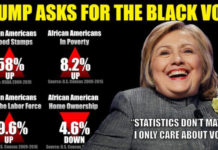Many black lawyers leave big firms to strike out on their own or to join the public sector.
By the end of Catina Haynes’s first year in 2006 at one big Houston law firm, she said, many of the minority lawyers who had started with her were gone, along with the lawyer who recruited her. Billable hours shrank as the economy weakened, and Ms. Haynes said black lawyers did not always have advocates. “It took someone in power to pull other people in and say, ‘I want them on cases,’ ” Ms. Haynes said. She left the firm in 2010 and now works in the Harris County District Attorney’s Office.
Thompson & Knight currently has eight black lawyers, down from 17 in 2008. The overall size of the firm declined during that period as well, but the portion of minority lawyers has fallen, too. In 2008, 15 percent of its lawyers were minorities, according to the Diversity Scorecard, an annual survey by The American Lawyer, but in 2011, the year covered by the most recent scorecard, 10 percent were minorities.
“The firm genuinely had a very strong diversity commitment when I joined,” said one current partner, who requested anonymity because he was not authorized to speak publicly. He added that Ms. Higgins’s exit in 2008, the death of the firm’s former managing partner and the recession hurt the momentum. When Ms. Higgins was at the firm, he recalled, the diversity committee sat down together regularly. “You were scared not to attend,” he said.
Emily Parker, the managing partner at Thompson & Knight, said the firm was proud of its black partners and worked hard to promote diversity, but she noted that many top law firms had struggled to retain minority lawyers in recent years. She pointed out that the Diversity Scorecard survey had reported a decrease in the number of minority lawyers at top firms since 2008, even as more firms responded to the survey.
“Even though the number of surveyed law firms increased by 10 percent, the overall number of minority attorneys decreased by approximately 3 percent, which is a convincing statistical illustration of the minority-retention problem faced by Thompson & Knight and practically every law firm in the country,” Ms. Parker said in a statement. She said the firm remained focused on fostering diversity, providing law school scholarships for minority students and internships for students from historically black institutions.
Despite the challenges, some lawyers at Thompson & Knight said they saw signs of renewed progress. Ms. Parker, who was the first female lawyer hired by the firm in 1973, last year became the first woman to lead it. This spring, Marlen Whitley, who is black, was named hiring partner in the firm’s office here in Houston, and a black associate is scheduled to join the Dallas office this fall.
The firm has five black partners, more than many others and an increase from three in 2008. Still, only two are equity partners, who share in the profits of the firm. “Being an equity partner means you’ve arrived, that you have clout,” the current partner said. “It’s the brass ring.”











I think that much of the problem in the legal community in general could be the following:
Too many lawyers
Large firms will hire only the top 10% of a class
Top law school rankings are statistically gamed
Large law firms hire from the top law schools first
There are many talented lawyers graduating that are not getting a chance at any law firm. Law school tuition is at a record high.
I think that many legal grads should look into other careers.
The positive is that they know how to think as well as write well. The negative is that they are usually encumbered with massive debt. The law schools have done a great job of training and selling a bill of goods. There are just too many lawyers. Many law schools have misrepresented the job opportunities.
Affirmative Action for EurAmericans = 375 years (intense and uninterrupted)
Affirmative Action for AfrAmericans = 45 years (weak and sporadic)
I use this equation in my new book, “RaceMan Answers: America’s Toughest Questions about Race & Inequality”
To mind little “black” mind, the goal of “diversity” has always been a clever, ahistorical dodge, and a ploy to avoid the results of my equation. “White” Americans are economically so far ahead of “Black” Americans because they’ve been given entitlements based on the philosophy and policies of our Skinocracy.
(The average EurAm family is worth 20 times the average AfAm family, according to a CNN study last year)
“Whites” have been playing the proverbial Race Card in America from the beginning.
The fact that our Supreme Court is, even as I write, considering ending affirmative action for AfAms in any form only underlines the real problem – the refusal of our “leaders” to finally confront and correct the USA’s founding flaw – slavery and white supremacy.
Right?
The fact remains hiring african americans has little to do with achievement but access. The white community feels no responsiblity for others and the issue is not qualifications but culture and discriministration. People hire who they know and not necessarily who is best for the job. Two candidates with the same qualifications one black and one white if the hiring manager is white he will pick who is closest to him and more like his culture. If you dont attend the same events and same schools you will not have the same jobs. As an hbcu grad (historically black college) i know plenty of doctors and lawyers and professionals who are african american they simply choose not to work at fortune 500 companies because you many times have to compromise or face discrrimination in addition to doing your job well usually with half the resources your counterparts have. White people dont know their neighbors and feel ‘obligated’ . As with segregation you cant create law to change the heart, when theyd rather not step outside of their circle. Their loss. I will just take a pay cut.
As genetic diversity is crucial to evolution, so is perhps the socially inclusive diversity promotion efforts, which might often prove rewarding in terms of building organisational health and talent pool with a wide range of cultural experiences.
I think its bad business to pass over people who are qualified and hire people who are less qualified. That’s not going to move a country or a business forward. But it does give people who are passed over the opportunity to form their own businesses and work for themselves. Like Hype said sometimes you gotta take the pay cut and work outside of the top companies because the top companies will have discrimination and a lot of other headaches that you (probably) won’t experience working for a black organization.
I agree with Mickey that top law schools don’t hire a large portion of people and law grads should look elsewhere to apply their skills. But many people can’t let go of their dreams and just take any job when they’ve been bragging about how their degree is going to get the some special job that no one else can get. Can people really take that pay cut or do they just want to have a Benz in their driveway, no matter the psychological cost?